You knew this right? Apple buyers are wealthier

Most Apple products aren't exactly comparably low-priced, so it shouldn't surprise anyone that customers have higher incomes -- considerably more. Still, by how much is about as startling as the sticker shock a Dell Inspiron buyer gets when shopping MacBook Pros. I'm surprised Apple doesn't post a trauma team with security guards (unless perhaps Apple Store employees are registered EMTs) inside its retail shops; surely someone suffers cardiac arrest from the prices.
For some reason NPD and Nielsen issued data within days of one another looking at device buyer demographics -- hence why I'm posting about price at all. Beyond the press release data, which you can read in a few paragraphs, I wondered about Macs and iPads, seeing as analyst firms Canalys and DisplaySearch insist that tablets are PCs. So I asked Stephen Baker, NPD's vice president of industry analysis, about US demographics.
iPhone 4S sure is a slowpoke

The question I have: Why doesn't it matter?
Over the weekend, iPhone 4S and I spent some quality time together. My interest: How does the user experience compare to Galaxy Nexus? There certainly are differences, but the most startling, at least in San Diego, Calif., is data speed. Verizon's LTE network kicks ass, while AT&T's HSPA+ -- on iPhone 4S -- does not. Hey, why walk 30 miles to work when you can drive there?
Windows 8 logo is a disaster

There's something poetic about Microsoft changing Windows' logo during the centennial anniversary of Titanic's tragic sinking. Many people involved in the great streamliner's design and building -- and surely those buying into publicity about it -- regarded Titanic as unsinkable. There's similar pervasive view about Windows, that nothing can sink its market leadership. Uh-oh, someone only put the watertight doors as high as E deck.
Microsoft's flagship operating system will sail on its maiden voyage, so to speak, with the Consumer Preview coming in less than two weeks (if not sooner). Windows 8 will take a northerly course through ice-infested waters as Microsoft "re-imagines" the platform in ways that will stress customers', developers' and other partners' commitments. Execution will be key, and every detail planning the course matters. That's right down to the logo, which significance is much bigger than Windows.
Meet Mountain Lion [slideshow]

[portfolio_slideshow id=59150]
On February 16, Apple unexpectedly released the OS X 10.8 developer preview and announced the software's availability some time in "late summer". Apple highlights 10 new features in Mountain Lion, the majority of which inherit capabilities from iOS 5 on iPad: AirPlay Mirroring, Game Center, Gatekeeper, iCloud, Messages, Notes, Notification Center, Reminders, Share Sheets and Twitter.
Apple launches OS war against Microsoft

Today, without fanfare, prior notice or even a rumor on the InterWebs, Apple announced OS X 10.8 Mountain Lion's summer availability, released a developer preview and made available, as public beta, Messages, one of the new features. Suddenly, the year's schedule of software releases is a dramatic showdown between Mountain Lion and Windows 8 and Windows on ARM. Can you say cat fight?
Microsoft plans to release Windows 8 Consumer Preview later this month, with an official event planned for February 29 during Mobile World Congress. Many Microsoft watchers presume the venue's choice foreshadows increased emphasis on mobile features, particularly as the Redmond, Wash.-based company seeks to recover momentum against iPad. Apple isn't waiting around, boasting about OS X 10.8 inheriting mobile features from iOS 5 (on iPad) and tightening ties to iCloud. Mountain Lion also will likely release ahead of either Windows 8 or Windows ARM, increasing pressure on Microsoft to ship this year.
iPhone saves smartphone market
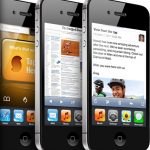
"Smartphone volumes during the quarter rose due to record sales of Apple iPhones". That's a helluva statement -- from Gartner's press release on Q4 2011 handset sales today. Emphasis on sales, which is what the analyst firm measures, not shipments into the channel like its competitors. One hundred-forty nine million smartphones sold globally during the quarter, up 47.3 percent year over year, 35.46 million from Apple.
Last month, Apple claimed 37.04 million iPhone sales, which, of course, really means shipments. Apple's stunning fourth quarter raised its ranking. The Cupertino, Calif.-based company passed LG to take third place in overall handset sales for all 2011 -- not just smartphones -- 5 percent to 4.9 percent share, respectively. In smartphones, Apple claimed top spot for the quarter and all 2011, with 23.8 percent and 19 percent market share, respectively. Apple sold 89.7 million handsets last year.
Are you bored with Windows Phone?

I have to ask, because Microsoft is prepping Windows 8 Consumer Preview for release later this month and Windows on ARM for more limited testing. Both operating systems will, in Metro, use similar UI motif as that on Windows Phone. Is it really the best choice? Not having used Windows Phone, I have no answer. So I turn to you.
"Boring" is a word I've seen used to describe Windows Phone, here in BetaNews comments and on some mobile device forums -- that user excitement, because of the tile-like user interface's fluidity and simplicity, diminishes over time. In that scenario, Microsoft's "glance-and-go" design philosophy takes on different meaning: People get off the phone because they can't stand using it, rather than being empowered to live life instead of on the device.
Apple patent bullying reaches new low

People whining about human rights violations at Apple manufacturing facilities in China should look at business behavior, too, for it reveals much. Companies tend to act fairly consistently, reflecting the personalities of the people running them. If Apple shows disregard for workers making its products, then so should insensitive behavior crop up elsewhere. I see it in the callous patent attacks, which reached a new low yesterday. The company wants to sue bankrupt Kodak.
Apple's asking a bankruptcy court to sue for the patents is like demanding a judge turn over a portion of granddad's estate while he is still on life support. Kodak was the Apple of its day, bringing portable photography to the mass market in ways quite similar to iPod, iPhone and iPad today. Apple and Kodak are two of the greatest innovative American consumer technology companies of the last century, and they share similar attributes about creating compact, trendy and attractive products. On the design front, Apple owes much to Kodak and borrowed much from it. What a helluva way to show gratitude.
If only Windows Phone was this popular everywhere...
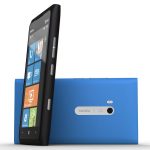
I know that BetaNews readers aren't indicative of the general population. You made that clear when answering our October 2011 browser poll you came out big time for Chrome. Google's browser is most popular among you, but really ranks third in global usage share, according to Net Applications.
Respondents to more recent poll "Microsoft Store is taking pre-orders for Nokia Lumia 900. Will you buy this Windows Phone?" answered resoundingly yes. If your responses were the measure of success, Microsoft and Nokia already would be kicking Android and iPhone butt down the hill.
Would you buy 8-inch iPad?
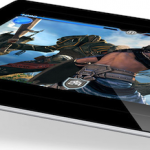
Wall Street Journal claims that Apple is testing a smaller tablet, around 8 inches. The question: Would you buy one, if available?
Who knows, maybe your answer will help Apple, given how super-secretive is the company's product development. You can be the customer research Apple should seek before launching new products, particularly now that Steve Jobs -- master of good taste and guiding voice of one -- is gone. Please answer in comments and take our poll. But first read this perspective on what 8 inches could mean.
Googolora receives critical regulatory approval
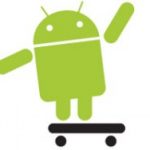
Amid rumors the US Justice Department will approve Google's merger with Motorola Mobility this week, the European Union's Competition Commission acted first, clearing the deal.
In a procedural move, the European Commission halted merger review in mid December, after requesting additional information. Today's approval puts Googolora (not any official name, of course) within view. Merger now seems all but inevitable.
How far Apple has come to reach $500
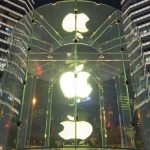
I don't own any stock (for conflict-of-interest reasons), but it's hard to ignore Apple pushing above $500 a share today. By three dollars and eighty-three cents. In midday trading shares are still a respectable $499.79. Apple opened at $499.74 today from Friday's close of $493.42.
The Cupertino, Calif.-based company has come a long ways to reach this point.
What Windows 8 means to Microsoft and to you

The headline really should be "What Windows 8 and Windows on ARM mean to Microsoft and to you" but that didn't ring right to my ears. But it more aptly describes the train of this analysis.
Simply stated: Windows 8 is the riskiest release ever. Microsoft execs say they are "re-imagining" Windows. Believe them. But it's much more: Reinvention. If successful, Microsoft will be a very different company in five years, and that's as much about the future stock price and company valuation as market position and products. All depends on the risks delivering rewards.
Why will Windows on ARM devices come with Office 15?

Because Microsoft can do it. The software giant wouldn't have dared on x86 PCs.
Steven Sinofsky's nearly 9,000-word Windows on ARM manifesto packs lots of surprises. Among the biggest: "WOA includes desktop versions of the new Microsoft Word, Excel, PowerPoint and OneNote". Say what? Now why is that? Four reasons stand out: Litigation, protection, competition and adoption.
Windows on ARM is the future
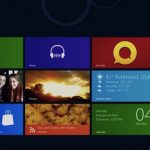
In September, about a month before Apple's cofounder died, I asserted that "Steven Sinofksy is the new Steve Jobs". Jobs' on-stage presentations, and the "reality distortion field" with them, are legendary. But chatter and buzz can fill the InterWebs, without seemingly magical Apple events. Sinofsky's blog post, "Building Windows for the ARM processor architecture", while hardly a compelling title, is Microsoft's manifesto for this decade. People are talking, chatting, buzzing -- and they should be.
Microsoft is in the process of rebuilding Windows for the post-PC era, by stepping back from its core roots -- Intel processors -- and embracing ARM. Windows will still run on x86 processors, but there's now little doubt that, without major chip changes from AMD or Intel, Wintel is legacy and ARM is the future. The architectural change opens up mobile device categories, even Windows 8 on smartphones, that the OS can't effectively reach today. Essentially, Microsoft is betting the flagship operating system's future on ARM. Sinofsky made a big statement in a small way -- nothing more than one of the longest blog posts you'll read ever (It's more than 8,000 words, closer to 9,000 really, which is enough to publish as a Kindle Single).
Joe's Bio
Joe Wilcox is BetaNews executive editor. His motto: Change the rules. Joe is a former CNET News staff writer, JupiterResearch senior analyst, and Ziff Davis Enterprise Microsoft Watch editor.
Ethics StatementBetaNews, your source for breaking tech news, reviews, and in-depth reporting since 1998.
© 1998-2025 BetaNews, Inc. All Rights Reserved. About Us - Privacy Policy - Cookie Policy - Sitemap.
